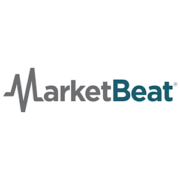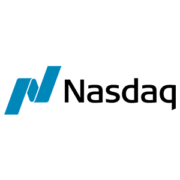Middle-market businesses seeking buyers from other countries face challenges — but might reap big rewards
By James S. Cassel

For middle-market companies looking to be acquired, a foreign buyer can sometimes prove to be the best fit, but finding that buyer and closing such a deal can make for a complicated process with unique challenges.
Opening your business to being acquired by a foreign buyer, thereby adding to your list of suitors, can be a good way to increase competition and therefore the ultimate sale price. Oftentimes, foreign buyers are willing to pay more than domestic acquirers when they see a strategic advantage or can add value by getting access to a U.S. platform and the U.S. market. It may also give them instant credibility if they are buying a trusted brand.
More than just money, you may also find that a foreign buyer can sometimes be a good strategic fit as well. Based on the calculus of what your company and the foreign buyer are looking for, the advantages that come with access to a new market, good supply chains and distribution, useful proprietary technology, and other possible synergies can make for an attractive deal for both parties.
But how do you find the right foreign buyer? The first step is to consult with an investment banker with experience and relationships with buyers outside of the U.S. and who knows the best ways to access and vet these potential buyers. You must share with that investment banker exactly what you want out of the sale: Do you simply want to sell, or are you are interested in leaving behind a legacy? Are you looking for a quick exit, or do you want to remain in a leadership role, and if so, for how long? These factors may have significant implications for the final deal, one that could mean selling 100% of the business, or just a minority or majority position.
You may also find that the ideal foreign buyer is someone you are already doing business with, or even partnering with. It might be one of your competitors. Whomever the best choice is, it will be up to your investment banker to vet and approach that potential buyer.
Still, finding the best foreign buyer is only half the task. You also have to address the cultural, regulatory, legal and financial challenges of closing the deal.
To begin with, in many cases, a company looking to sell to a foreign buyer may need to notify the Committee on Foreign Investment in the United States
(CFIUS) and then get past that interagency committee’s regulatory review. A good, experienced legal team is a must. With increasing trade secret thefts, mounting concern over technology transfers, national security entering into the equation, and scrutiny moving beyond Chinese and Russian buyers, you may be surprised at what issues may arise.
Even with a qualified, prospective foreign buyer who can clear regulatory complications, you must still assess the buyer’s grasp of our cultural, legal, and financial hurdles, which may extend the time it takes to close. You and your investment banker may need to educate the buyer and guide them through the deal. Does the buyer, for example, understand how to interpret
U.S. financial statements and documentation? Does the buyer have sufficient knowledge of our environmental and labor laws? Will they be able to secure access to lenders who will loan to a foreign buyer for an acquisition? Will they be able to move money into the U.S. to close the deal in a timely manner? Not all can.
Expanding the universe of potential buyers for your company beyond the U.S. can help you secure the best deal, ideally resulting in a great strategic fit for both parties. But closing that deal will be a much greater challenge and will take longer than selling domestically. Though the issues you will face will be more complex, addressing them early on may result not only in the best price for your company, but an exit that has meaning for you beyond your bottom line.
James S. Cassel is co-founder and chairman of Cassel Salpeter & Co., LLC, an investment-banking firm with headquarters in Miami that works with middle- market companies. He may be reached via email at jcassel@casselsalpeter.com or via LinkedIn at https://www.linkedin.com/in/jamesscassel.
Click here to read the PDF.






